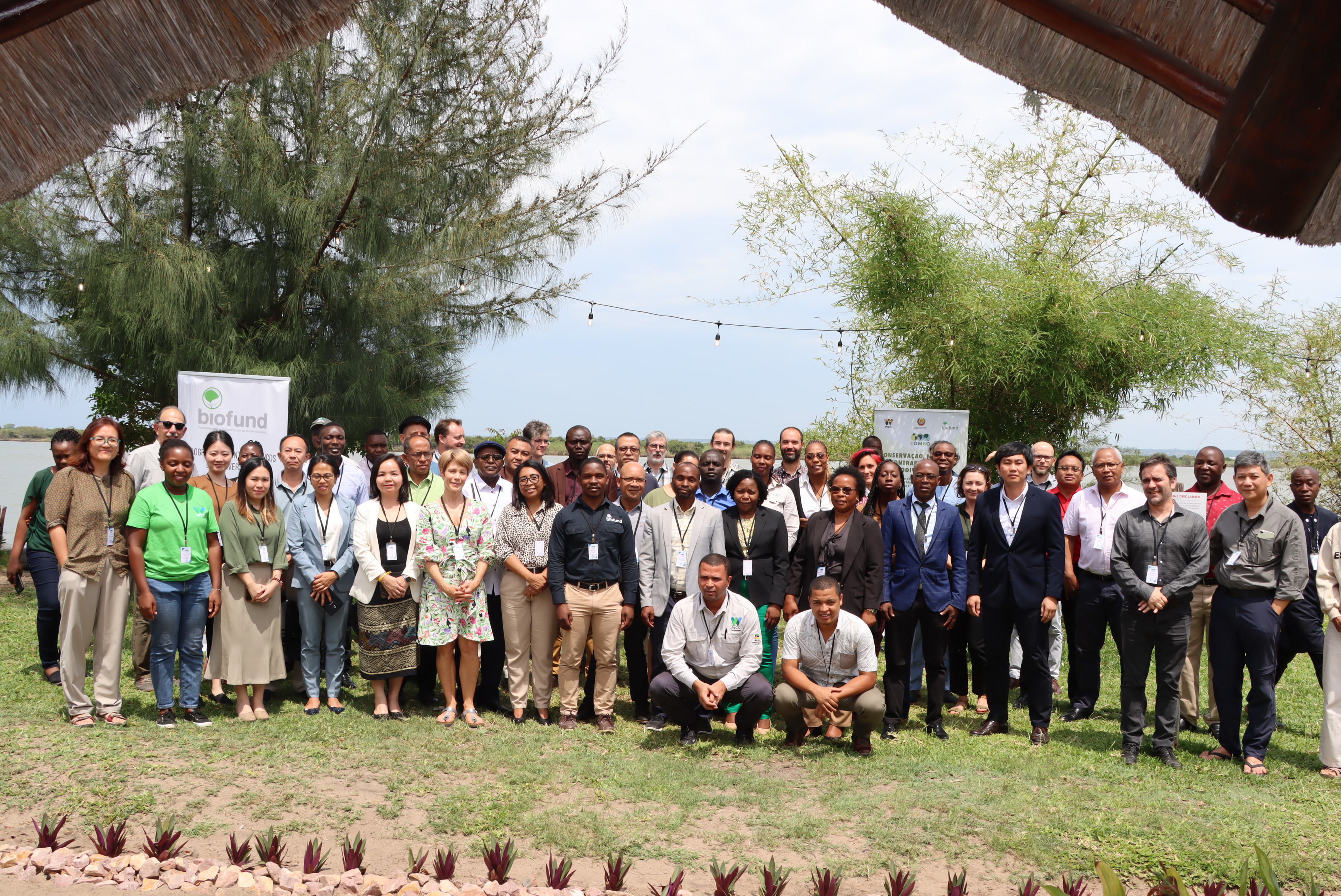The mid-term evaluation meeting of the COMBO+ programme ("Conservation, Mitigation and Biodiversity Offsets") was held in Macaneta, Mozambique, from 7 to 11 November, ending with a field trip to Maputo National Park. The event was hosted by Mozambique's Ministry of Land and Environment, with almost 60 participants representing the programme's technical teams and host governments (namely Guinea Conakry, Uganda, Mozambique, Madagascar, Myanmar and Laos), a delegation from China's Wildlife Conservation Society (WCS), our donors, the French Development Agency (AFD) and the French Fund for the Global Environment (FFEM), three conservation trust funds, the Foundation for the Conservation of Biodiversity (BIOFUND), the Foundation for the Protected Areas and Biodiversity of Madagascar (FAPBM), and Tany Meva, as well as other relevant partners in the programme's implementation.

COMBO+ is an initiative that has been running since 2016 and which supports the governments of the aforementioned countries in reconciling economic development with biodiversity conservation, through the appropriate implementation of the mitigation hierarchy, with the focus on achieving no net loss or a net gain of biodiversity, while simultaneously contributing to the achievement of the respective national targets.
Two years after the start of the second phase of COMBO+, the mid-term evaluation meeting was held with the aim of taking stock of the progress made to date, sharing experiences and knowledge about its implementation, including the lessons learned by each of the member countries, identifying problems, discussing solutions and planning the activities that are needed until the end of the programme.
Overall, the event was a great success and showed that despite the challenges faced by the implementing countries (e.g. political instability in some countries), fundamental steps have been taken in terms of improving the policy and legal framework, building the necessary tools and technical capacity to support proper implementation of the mitigation hierarchy and establishing case studies from which to draw lessons learnt.
The COMBO+ Programme is funded by AFD and FFEM, with co-financing from other donors, and is led by WCS in partnership with Biotope, Guineé Ecologie, BIOFUND and the University of Queensland. In Mozambique, it is being implemented by WCS, BIOFUND and the National Directorate for the Environment (DINAB).
The mid-term evaluation meeting of the COMBO+ programme ("Conservation, Mitigation and Biodiversity Offsets") was held in Macaneta, Mozambique, from 7 to 11 November, ending with a field trip to Maputo National Park. The event was hosted by Mozambique's Ministry of Land and Environment, with almost 60 participants representing the programme's technical teams and host governments (namely Guinea Conakry, Uganda, Mozambique, Madagascar, Myanmar and Laos), a delegation from China's Wildlife Conservation Society (WCS), our donors, the French Development Agency (AFD) and the French Fund for the Global Environment (FFEM), three conservation trust funds, the Foundation for the Conservation of Biodiversity (BIOFUND), the Foundation for the Protected Areas and Biodiversity of Madagascar (FAPBM), and Tany Meva, as well as other relevant partners in the programme's implementation.
COMBO+ is an initiative that has been running since 2016 and which supports the governments of the aforementioned countries in reconciling economic development with biodiversity conservation, through the appropriate implementation of the mitigation hierarchy, with the focus on achieving no net loss or a net gain of biodiversity, while simultaneously contributing to the achievement of the respective national targets.
Two years after the start of the second phase of COMBO+, the mid-term evaluation meeting was held with the aim of taking stock of the progress made to date, sharing experiences and knowledge about its implementation, including the lessons learned by each of the member countries, identifying problems, discussing solutions and planning the activities that are needed until the end of the programme.
Overall, the event was a great success and showed that despite the challenges faced by the implementing countries (e.g. political instability in some countries), fundamental steps have been taken in terms of improving the policy and legal framework, building the necessary tools and technical capacity to support proper implementation of the mitigation hierarchy and establishing case studies from which to draw lessons learnt.
The COMBO+ Programme is funded by AFD and FFEM, with co-financing from other donors, and is led by WCS in partnership with Biotope, Guineé Ecologie, BIOFUND and the University of Queensland. In Mozambique, it is being implemented by WCS, BIOFUND and the National Directorate for the Environment (DINAB).